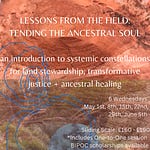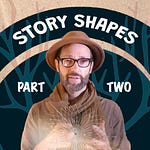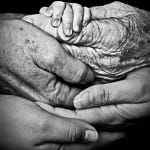I’ll open with a passage penned by none other than the Dalai Lama, which appears in the preface of Coming Back to Life, the Updated Guide to the Work that Reconnects, by Joanna Macy and Molly Brown.
The Dalai Lama writes:
Although it is increasingly evident how interdependent we are in virtually every aspect of our lives, this seems to make little difference to the way we think about ourselves in relation to our fellow beings and our environment.
We live in a time when human actions have developed a creative and destructive power that has become global in scope. And yet we fail to cultivate a corresponding sense of responsibility. Most of us are concerned only about people and property that are directly related to us. We naturally try to protect our family and friends from danger. Similarly, most people will struggle to defend their homes and land against destruction, whether the threat comes from enemies or natural disasters such as fire or flooding.
We take the existence of clean air and water, the continued growth of crops and availability of raw materials, for granted. We know that these resources are finite, but because we only think of our own demands, we behave as if they are not. Our limited and self-centered attitudes fulfill neither the needs of the time nor the potential of which we are capable.
Today, while many individuals grapple with misery and alienation, we are faced with global problems such as poverty, overpopulation, and the destruction of the environment. These are problems that we have to address together. No single community or nation can expect to solve them on its own. This indicates how small and interdependent our world has become.
In ancient times, each village was more or less self-sufficient and independent. There was neither the need nor the expectation of cooperation with others outside the village. You survived by doing everything yourself.
The situation now has completely changed. It is no longer appropriate to think only in terms of even my nation or my country, let alone my village. If we are to overcome the problems we face, we need what I have called a sense of universal responsibility, rooted in love and kindness for our human brothers and sisters, and the world.
In our present state of affairs, the very survival of humankind depends on people developing concern for the whole of humanity, not just their own community or nation. The reality of our situation impels us to act and think more clearly. Narrow mindedness and self-centered thinking may have served us well in the past, but today will only lead to disaster.
We can overcome such attitudes through the combination of education and training
His Holiness Tenzin Gyatso
The 14th Dalai Lama of Tibet
Written on September 7th, 1998.
Beyond our Senses
As I write this, I am sitting beside a pond filled with cat tails and reeds, and I'm listening to the calls of frogs and ravens.
I touch this water. Run my hand over these ferns. Caress this moss, and run my fingernails over this alder bark. If something were to happen to this pond, these trees, these ferns, these creatures… if a great industrial force with chainsaws and log lifters were to careen through here, I would know it, for I am here. The smells and tastes and sounds, sights and textures of this place surround me. My body and these bodies share the same space. My senses and the senses of these others overlap.
And yet, if I were to leave here, I might find this land for sale on a property board somewhere on the internet, and if I had enough currency tokens, I might purchase it, and decide to log it. All this I could do from a distance, without bringing my senses into this space, without being culpable before the creatures who call this place home.
This scenario, in miniature, is perhaps our species’ greatest challenge when writ large. It is a strange thing to purchase land and direct its destruction ,without ever seeing it; I must apologize for this land here for even imagining such things. Yet we are involved in directing such remote violence with every purchase at the grocery store, or the gas pump, or the airport, or a shop selling digital devices.
Our everyday actions affect sensory environments that we may never sense with our bodies. This is something we haven't before faced as a species, at least not to this magnitude. We are attempting to come to terms with our consequence on the planet, and this attempt is showing our shortcomings. We in First World countries have the greatest impact, not because we have different natures, but because we have more capacity.
Three Spheres of Ethics
I propose three spheres of ethics to consider.
In the first two, we are quite accomplished. The first is ethics to oneself eating well, exercising well, being careful not to take in disturbing sights and sounds. Being careful who we let into our lives. Being careful, in short, to be good to ourselves. Now, whether you or we always get this right is another question, but most of us are quite aware of it and working on it.
The second sphere of ethics is in relation with our friends ,children, parents, colleagues, people in our demographic, people in our city, people in our country. In short, people whom we consider to be our people. Whether we get it right or not, most of us are aware that it's important to be in good relations with these people: to not steal, to not be violent, to respect their ways of living a dignified life.
Then there is the third ethics. This ethics relates with ecosystems and people who are outside our sensory range, but who are impacted by what we do in our sensory range: by filling the gas tank, buying imported food from the grocery store, or buying a new phone. Although these distant beings are impacted by our actions, we do not directly witness that impact.
I think it's fair to say that our planet, and our time, are asking us to encompass these beings with our awareness. To include them in our considerations, though we may never encounter them with our senses, as one creature is used to encountering another.
We are Connected
We are connected to them: through scientific reports from lands where sea levels are rising and topsoil is eroding, and perhaps from symptoms in our own land, like smoke in the sky as forest fire season worsens, or coral bleaching when we go out to swim. We know that our actions have consequences not only in distant places, but everywhere in this world we call home. We know, and yet many of us, and most of us some of the time, act as if we don't know. Why is this?
Perhaps it is due to some shortcoming in our makeup as a species, that we did not evolve to consider the worldwide implications of our actions. Perhaps it is because we are more socially, culturally and ecologically woven into the places where we live than to distant places, so we don't feel those other places through the web of being we do those near us. Because our cultural/spiritual/social web gets thinner as it extends from us. Or seems to.
Whatever the reason, I find myself looking for ways of bringing those distant places close: ways that we as individuals and groups can feel our remote impact, so that when I consider whether to get a car, for example, I consider not just the price of the car, not just whether those I know personally would be okay with me getting a car, but also the costs to the mycelium crushed by tarmac, the First Nations folks in Alberta poisoned by tar sands, or those in Nigeria and South America pushed off their land by corporations I'm helping to fund.
My choices may make sense within the first and second spheres. A journey to a distant land for self-discovery is good for me. Getting a big four-wheel-drive vehicle is good for the safety of my family. But what is the impact on the locals in the place that I'm traveling? How does my vehicle affect the air we all breathe? The fuel it uses is destructive in both its extraction and its burning, as is the mining and melting of the virgin metal used to make the chassis.
These three spheres of ethics are deeply inter-related. I may act only for personal and inter-personal wellbeing, but there will come a time—and perhaps it comes subtly and immediately—when the health of the wider world will impinge upon my own well-being, and the well-being of those I know.
How might I bring those larger implications into my decision making: with maturity, with grief, and with a willingness to face up for that which I am part of? How can I bring distant sensory environments into my own? Here's another way of asking this: given that my entire species evolved, as did all species, to interact with those in our sensory environments; given that I'm used to understanding what's in front of me, who's in front of me; given that I'm not very good yet at relating with ecosystems, creatures and people on other sides of the world, or even across the city I'm living in; how might I bring those beings closer to myself? How might I bring those beings, to whom I'm so consequential, into my sphere of awareness?
Furthermore, how might we do this? In classes, companies, communities, workshops, churches, temples? You name it, in all the spaces that we gather.
Dune’s Prophetic Witches
Here is a fictional example that indicates third ethics,. It’s a bit weirder and more scheming than what I really have in mind, but it helps to look from a fictional angle. So consider the Bene Gesserit, the Galactic Order of Witches in the Dune stories by Frank Herbert.
In this story, there are various powerful houses that have been existing for hundreds or thousands of years. Sometimes they cooperate, and often they compete. There's a lot of vying for power going on in this galaxy, and all the while, there’s this order of witches. Some are married, some are not, some are young, some are eldresses, and these interwoven ladies are keeping an eye on the big picture.
They may not always know whether this royal house will win, or whether that one will, and so they place bets on either side. They're not for or against any particular house, or any particular emperor. They move with the possibilities, and keep an eye out for the grand picture. They ensure stability. The Third Ethics is something like this. While other groups are vying for their benefit, there are those who are not invested in the victory of this side or that side, but who are instead considering the whole.
It’s not perfect, but this illustrative, fictional example shows how we can look out for our own, while considering the wider picture that includes everyone, and not just humans.
In the next issue, we’ll explore other approaches to come close to distant beings, namely spiritual, technological, and of course, stories. In particular, we’ll look into how the advent of the novel led to the human rights movement.
Let’s continue this exploration in the next episode. There, well look into the power of stories. In particular, how the advent of the novel led to the human rights movement.
Until the next
happy creating,
Theo















A Third Ethics Part 1: Evolving a Worldview to Encompass the World We Impact